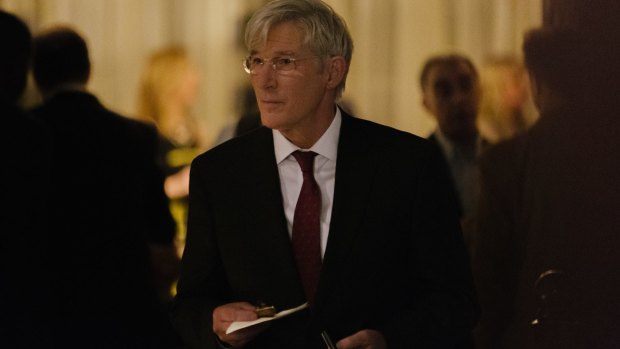In the late 1990s, a series of high-profile films criticizing China were released by Hollywood.
Among them was “Red Corner,” a film starring Richard Gere, one of the biggest stars at the time.
However, the film failed to make a lasting impact and is rarely discussed today.
“Red Corner” tells the story of an American lawyer, Jack Moore (played by Gere), who becomes trapped in a corrupt Chinese legal system.
Gere, who was passionate about the project, had previously condemned China's occupation of Tibet and its human rights abuses, which made him a target of the country's ire after the film's release.
The film follows Moore as he visits Beijing to negotiate a satellite communications deal with the government.
During his stay, he has a one-night stand with a general's daughter, Hong Ling (played by Jessey Meng).
However, Moore wakes up to find that Hong Ling has been murdered, and he soon finds himself facing the death penalty in court.
Moore's only hope for survival is state-appointed lawyer Shen Yuelin (played by Bai Ling), who advises him to plead guilty to avoid being sentenced to death.
She warns him that unlike in his country, where sentences are carried out after a long process, in China, executions happen within a week, and the cost of the bullet used will be billed to his family.
To emphasize the severity of the situation, the film includes purportedly real footage of Chinese prisoners being executed.
This inclusion, although bold, fails to have a lasting impact as the film focuses more on Moore's fictional journey to freedom and the various tortures he endures.
Interestingly, most of “Red Corner” was not filmed in China.
The filmmakers traveled to Beijing to capture some guerilla-style footage, but the majority of the movie was shot on a mock-up set in Los Angeles.
This set, filled with imported Chinese bikes and cars, is showcased in a scene where Moore escapes his guards and flees across rooftops, still handcuffed, to the American embassy, only to turn himself back in to save Shen.
Surprisingly, the film does not only criticize China but also seems critical of America.
One of Moore's deals involves a Baywatch-style TV show called Beachside, which he acknowledges as soft pornography.
He quotes Mao, suggesting that they should use the West for Chinese purposes and argues that such content discourages the pursuit of Western values.
This portrayal raises questions about the clash between freedom and censorship in both countries.
In response to the release of “Red Corner” and other critical films like “Kundun” and “Seven Years in Tibet,” China's Ministry of Radio, Film, and Television banned any cooperation with the studios behind these movies.
They claimed that the films viciously attacked China and hurt the feelings of the Chinese people.
The ban had consequences for Gere's career as well.
He revealed that after the film's release, he received calls asking him not to participate in press activities.
MGM, the studio behind the film, wanted to secure a deal with China, so they decided to withdraw support for “Red Corner” to appease the country.
This decision had a negative impact on Gere's career, and he has since appeared in very few studio films.
Gere believes that his association with “Red Corner” and his criticisms of China have led to him being blacklisted by the Chinese government.
There are movies that he claims he cannot be a part of because the Chinese authorities will refuse to cooperate if he is involved.
In conclusion, the release of “Red Corner” and Gere's criticisms of China had significant repercussions.
The film, despite its anti-China stance, failed to leave a lasting impact, and Gere's career suffered as a result.
The incident serves as a reminder that challenging China's government can have severe consequences.
Related Posts
- Why Debra Winger Found Working With Richard Gere Challenging
- The Untold Story Behind Cindy Crawford and Richard Gere’s Split
- Shirtless Richard Gere’s Impact on Anderson Cooper’s Self-Discovery
- Richard Gere’s Shirtless Appearance Sparked Anderson Cooper’s Realization
- Richard Gere’s Marriage to Cindy Crawford: A Relationship That Started with an Ultimatum































